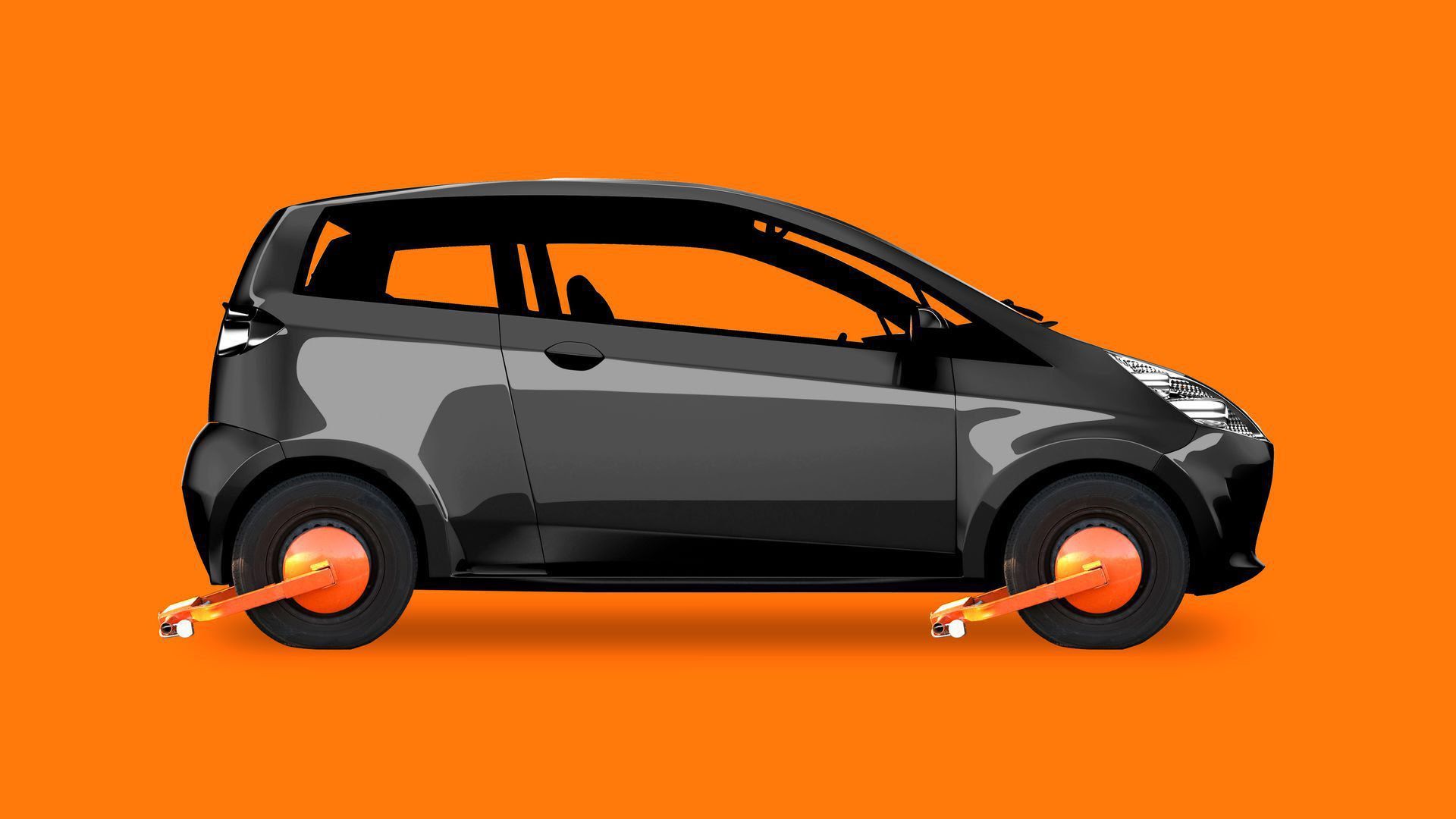Breaking down Uber and Lyft's threat to suspend services in California
Add Axios as your preferred source to
see more of our stories on Google.

Illustration: Lazaro Gamio/Axios
Uber and Lyft are ratcheting up the fight with California’s state government over the classification of drivers with a move that would deprive Californians of their ride-hailing services (and halt driver income).
Driving the news: On Wednesday, both companies said that if a court doesn’t overturn or further pause a new ruling forcing them to reclassify California drivers as employees, they’ll suspend their services in the state until November’s election, when voters could potentially exempt them by passing a ballot measure.
Between the lines: Many critics suggested the companies are bluffing, but I’m not so sure. A few reasons...
- The logistics aren’t trivial. They’d have to figure out staffing needs and a schedule, hire however many drivers they need, and onboard everyone.
- It’s unlikely the companies want to go through all the above, just to reverse course if they win in November.
- Depriving customers of these services could get them more support in November. The companies have, in the past, successfully turned customers into their political advocates.
- With demand for ride-hailing already being significantly deflated, the additional drop in revenue is perhaps something they’re willing to swallow.
- Even if they could make these shifts quickly, it’s unlikely the companies want to give drivers a taste of employee life and risk sabotaging their ballot measure.
- Lastly: They’ve done it before. In 2016, when Austin passed new rules requiring driver fingerprinting, Uber and Lyft suspended operations and didn’t return until Texas overrode the rules a year later.
Why it matters: Only Uber and Lyft are party to this lawsuit, but several district and city attorneys — and regulators — are already suing other gig economy companies like Instacart and DoorDash over the same California law.
- What happens at the California ballot box in November will have ramifications beyond Uber and Lyft’s ride-hailing businesses.
- It could also affect the future of high-demand services like food and grocery delivery, which have become critical for many Californians while the COVID-19 pandemic continues.
- (Uber also operates a food delivery business and recently agreed to acquire rival Postmates, which is widely popular in California cities like San Francisco and Los Angeles.)
The bottom line: Don’t expect these companies not to pull out all the stops to fight this.
